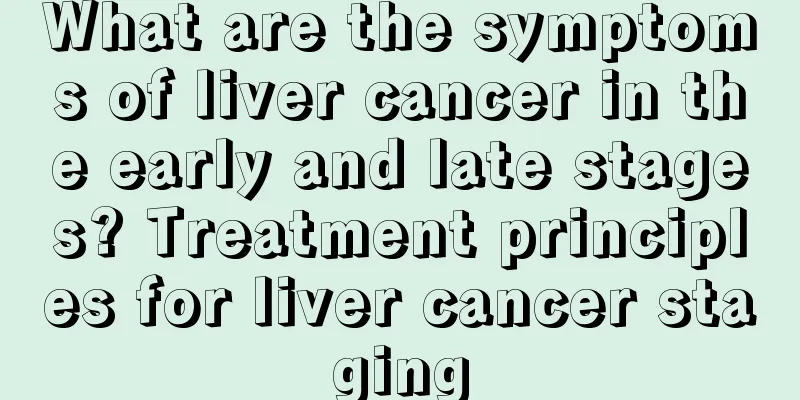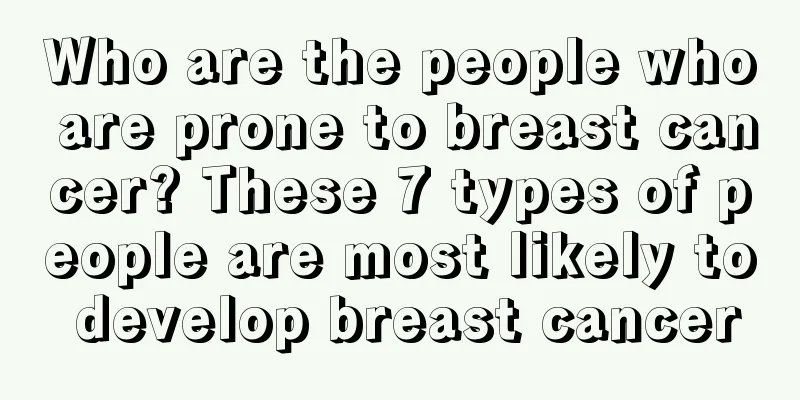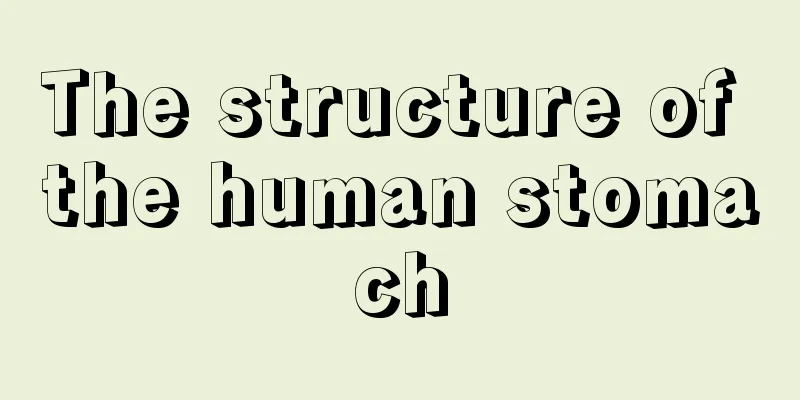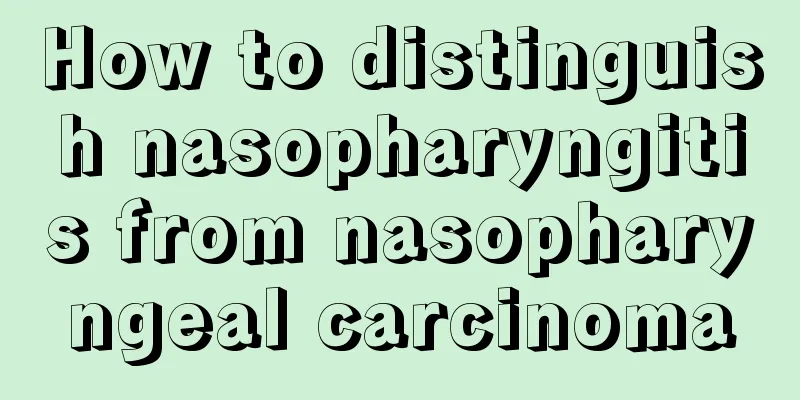What are the symptoms of liver cancer in the early and late stages? Treatment principles for liver cancer staging

|
Liver cancer is a very harmful disease that has taken away countless lives and brought pain to countless families. Early liver cancer is still easy to treat, so understanding the accurate method of diagnosing liver cancer will be of great benefit to our treatment and prevention. Please see below for an expert to talk about the early and late symptoms of liver cancer and the treatment methods and principles. Symptoms of early and late stage liver cancer 1. Symptoms of abdominal distension: It is often caused by enlargement of the left lobe, which compresses the stomach, and manifests as upper abdominal distension and indigestion symptoms. The presence of ascites can cause distension of the entire abdomen. 2. Fever symptoms: The fever of liver cancer is usually between 37.5℃ and 38℃, and a few can be higher. Patients often think they have a cold and fever and seek medical treatment. The body temperature is high, but the pain is not obvious. The cause of the fever may be ischemia and necrosis inside the tumor, the absorption of necrotic products, or poor liver function and metabolic disorders that produce pyrogens. 3. Symptoms of fatigue and weight loss: It is one of the clinical manifestations of early symptoms of small liver cancer. The consumption of liver cancer cells during proliferation, the stimulation of metabolites of cancer tissue, and malnutrition caused by eating less can all cause weight loss. 4. Pain in the liver area: Pain in the liver area is the first symptom of small liver cancer, which manifests as intermittent or persistent dull pain or stabbing pain in the liver area in the right upper abdomen. It may resolve on its own without treatment. It is sometimes misdiagnosed as cholecystitis, cholelithiasis, or duodenal bulb ulcer. Some patients experience tightness or distension in the liver area. 5. Digestive tract symptoms: It is a common early symptom of small liver cancer, mainly digestive dysfunction, clinically manifested as stomach enlargement, liver compression, decreased appetite, etc. Diarrhea is often caused by intestinal dysfunction caused by digestive and absorption disorders, intestinal infection, and ascites. 6. Damage to important organs: In important organs, cancer cells invade and directly destroy the normal structure of organs, which can cause organ damage and lead to death. The most important organ is the brain, which contains the respiratory and circulatory centers. If cancer blocks important ducts, it can easily lead to death. Liver cancer causes blockage of the common bile duct, which can cause jaundice, liver function and digestive dysfunction, which is the cause of death. 7. Metabolic abnormalities and bleeding: It can be caused by metastatic tumors or ectopic secretions. Common symptoms include hypercalcemia, hypoglycemia, and purine and urate metabolism disorders, and may even lead to renal failure and death. Bleeding: Bleeding in liver cancer patients can be caused by suppression of bone marrow hematopoietic function, thrombocytopenia, or by direct damage to blood vessels by cancer cells, or by severe infection that damages blood vessels, leading to rupture of blood vessels. Large amounts of blood loss can cause the patient's death. Bleeding is a very serious symptom before death in the late stage of liver cancer. Treatment principles for early-stage liver cancer For early-stage liver cancer, if the liver cancer is localized, liver function is normal, and liver cirrhosis is not severe, surgical resection is the first choice. If liver function is abnormal, the liver can be protected first, and surgery can be considered after liver function recovers. For patients with intravascular cancer thrombi, Chinese medicine, immunotherapy, and intrahepatic artery chemotherapy can be used after surgery. Treatment principles for mid-stage liver cancer For patients with normal liver function in the middle stage of liver cancer, radical surgery should be performed. If the tumor cannot be removed, TAE (transarterial embolization), Chinese medicine, and biological treatment can be performed. After the tumor is reduced, surgical removal can be performed. For tumors of 8-10cm, radiotherapy can be used, and Chinese medicine can be used at the same time. Or anhydrous alcohol can be injected into the tumor, and TAE can also be performed. For tumors limited to about 13 cm, interventional treatment can be considered first, with intra-arterial injection of chemotherapy drugs or embolization, and radiotherapy can be performed after the tumor is reduced. If multiple lesions occur, radiotherapy or interventional treatment combined with radiotherapy can be considered. If the liver cancer lesions are diffuse and the liver cirrhosis is severe, Chinese medicine can be used as the main treatment, combined with biological treatment or estrogen. Treatment principles for advanced liver cancer For patients with advanced liver cancer, when liver cancer is accompanied by ascites, jaundice, distant metastasis, etc., it is called the advanced stage. Palliative treatment is often adopted. |
>>: Can liver cancer be felt by hand? Pay attention to 5 aspects to prevent liver cancer
Recommend
How much does it cost to do seed implantation for pancreatic cancer
How much does it cost to do particle implantation...
What are the advantages and disadvantages of washing your face with white vinegar
Many people like to use white vinegar to wash the...
How to treat advanced laryngeal cancer
Laryngeal cancer usually requires reasonable trea...
Six dietary tips for liver cancer: Eat more of these fruits to prevent liver cancer
Diet for liver cancer. Liver cancer is a common d...
Pathological diagnosis of several common thyroid cancers
White-collar workers and female friends are now a...
How to treat hereditary colorectal cancer
Rectal cancer is one of the common malignant tumo...
Nursing methods for patients with liver cancer undergoing hepatic artery chemoembolization
Liver cancer patients can undergo hepatic artery ...
First aid for leg cramps?
Cramps are a very common phenomenon. The parts of...
Tips to prevent your big toe from breaking through your socks
As the saying goes, life is full of wisdom. This ...
Teeth are white like calcification
Teeth are extremely important and play an indispe...
What are the side effects of rhinoplasty?
With the improvement of living standards, people ...
Seven dietary treatments for constipation
Bad habits and unhealthy diet have caused many pe...
Radiotherapy is one of the main methods of treating lymphoma
For many complex lymphomas, resection surgery is ...
How to treat advanced nasopharyngeal carcinoma
Nasopharyngeal carcinoma is a relatively characte...
How to treat liver cancer bone metastasis? Do you know why you get liver cancer?
Cancer is a terrifying disease. With current medi...









